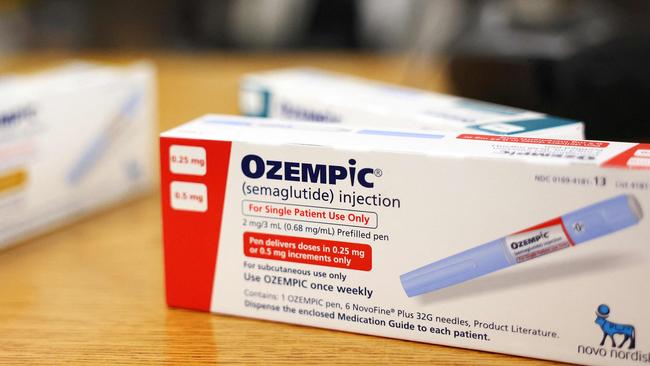Weight-loss drugs may help addicts kick fentanyl habit
A weight-loss treatment could be a powerful weapon against drug addiction, with a study suggesting it can reduce cravings as much as staying at a rehab clinic.

A cheap weight-loss treatment could be a powerful weapon against drug addiction, with a study suggesting that it can reduce cravings for powerful opiate pain killers as much as staying at expensive rehab clinics.
Ozempic, Liraglutide and other so-called GLP-1 weight-loss drugs have soared in popularity, with celebrities such as Elon Musk and Oprah Winfrey describing how they have used them to slim.
New data has raised hopes that they could also help addicts kick fentanyl, a synthetic opioid that is up to 50 times stronger than heroin, which the Department of Health says caused surges in drug-related deaths in England in 2017, 2021 and 2023 and which caused tens of thousands of fatalities in the US last year.
People who had become addicted to opioids who were given Liraglutide – which works in the same way as Ozempic but must be taken more often and is cheaper at $US10 a day ($15) – reported a 40 per cent reduction in cravings, compared with a control group who were given a placebo. Most had been taking fentanyl.
The effect was seen within a few days. According to the researchers, the reduction was about the same as if a person had intensive treatment at a high-quality residential addiction centre for a fortnight, which would cost more than $US1000 a day. In the US, where the trial was held, Liraglutide costs about $US300 for a month.
The findings were presented at the annual conference of the American Association for the Advancement of Science in Denver.
The study, which involved 20 people, is the first to look at using a GLP-1 drug such as Liraglutide or Ozempic to treat opioid-use disorder.
It also found that some of those who used the diet drug experienced periods where they reported being entirely free of cravings for opioids – something not seen in the control group.
“That was surprising. We were really excited to find that there could be any time in anyone’s day that early in treatment, within days of starting their recovery when they might say, ‘No, I’m actually not craving this at all’,” said professor Sue Grigson, director of the addiction centre at Penn State College of Medicine in Hershey, who co-led the research.
“This work started because of the huge increase in overdose deaths due to opioids, which have accelerated following Covid. In the United States, we’ve lost over 112,000 people this past year – that’s one person every five minutes. We have a real sense of urgency as a consequence of that. Some of us on the research team have lost people – that pushes us.”
She explained that the work was built on the idea that some individuals are far more vulnerable to addiction than others. “They’ll do anything, basically, to get the drug. They’ll not take care of themselves or their family, they’ll take big risks,” she said.
“We started to think about that as being driven by need – something like a desperate need for food, water or salt. So that’s what led us to GLP-1 – it’s a satiety agent that is able to reduce motivated behaviour for ‘needed’ substances.”
The trial participants were asked a set of questions four times a day via their smartphones, including whether they were feeling an urge to use drugs. Cravings were measured on a four-point scale. The average for the control group was 1.5. For those given Liraglutide it was 0.92.
Scott Bunce, associate professor of psychiatry at Penn State University, who also co-led the study, said: “That amount of reduction is the equivalent of spending two weeks in a very high-quality treatment centre, which would cost around $US15,000.”
He said that the results had to be treated cautiously because of the small number of participants, but there was no sign of any dangerous side-effects. “It’s a small sample, but it’s very encouraging,” he said.
“The safety profile of this class of medication has been tested in thousands of individuals, and is well known. We wanted to know if it was safe when used as an opioid treatment medication – and it appears to be safe, as well as effective.”
The Times



To join the conversation, please log in. Don't have an account? Register
Join the conversation, you are commenting as Logout